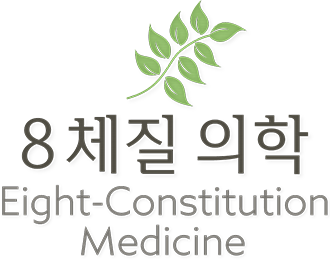Eight Constitutions Hepatonia
Hepatonia is a constitution in which liver and gallbladder are proportionally strong while lung and large intestine are proportionally weak.
Foods that support the liver and gallbladder are generally fish and other seafood, green leafy vegetables, grapes. Such foods can overstimulate the strong organs (liver and gallbladder). The strong organs have a regulatory role over the weaker organs; thus, overactivity of the strong organs can subsequently lead to further suppression of their antagonists, the weaker organs (lung and large intestine). As a result, the originally weak lung and large intestine becomes proportionally weaker, causing the relational discrepancy between the strong organs (liver and gallbladder) and weak organs (lung and large intestine) to increase, creating a state of excess imbalance. This causes the relational support between all organs and interactions to change; the immunity achieved from a state of appropriate imbalance becomes weakened and compromised, allowing clinical pathology to arise.
For example, depression, insomnia, bacterial/viral infections associated with decreased immunity can arise when strong organ-- the liver—is overactive; dermatitis, fatty liver, arthritis, obesity can result from an overstimulated gallbladder. Hepatonia vegetarians and vegans may have hyperlipidemia after being on a strict vegetarian or vegan diet for long periods of time. Drinking wine can worsen insomnia, depression, and dysautonomia. When healthy, Hepatonia’s blood pressure tends to run higher than average. When blood pressure is lowered, Hepatonia may experience chronic fatigue and functional decline. Increase in bowel movement frequency and diarrhea can indicate worsening large intestinal function, which can also lead to arthritis.
Because Individuals with Hepatonia tend to be naturally reserved, simple, quick and decisive, they are efficient, quick workers and have great interpersonal skills. When they are unhealthy, they have a tendency to be depressed and inactive. Due to their spontaneous nature, they may require more attention to careful planning and meticulousness.
If Hepatonia do not maintain good sleep hygiene, their overall health will be compromised. Because the best way to calm the overactive liver is by perspiring, ensuring that the Hepatonia’s body is warm while asleep is a good health tip.
The above are not absolute characteristics, but general tendencies of Hepatonia.
Sweat or perspiration is indicative of good health. The reason your body feels lighter after sweating in any way is because the excess liver heat is dissipated by sweat. It is beneficial to enjoy a hot bath. It is also very important to wear warm clothes while sleeping even during hot seasons. It is normal for your blood pressure to be slightly higher than average when healthy. Seafood and wine are very harmful.
| HARMFUL REGIMEN | BENEFICIAL REGIMEN |
|---|---|
| all ocean fish, seafood, shellfish, various types of cabbage (such as Korean cabbage, cabbage, bok choy), various types of lettuce, other green vegetables such as cucumber and broccoli, grapes, wine, glucose, buckwheat, bracken, quince, peach, cherry, aloe vera, frequent cold baths and cold drinks | beef, chicken, turkey, duck, milk(warm) and dairy products, white rice, soybeans, legumes such as peanuts, walnuts, ginkgo biloba, and all nuts, flour foods, all root vegetables (daikon radish, carrot, bellflower, lotus root, taro), garlic, pumpkin, mushroom, sugar, pear, apple, alkaline drink, sauna |

